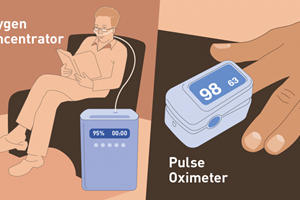With the rapid increase in the prevalence of obesity in many countries, obesity during pregnancy has become a common high - risk obstetric condition in many populations.
The immediate and long - term consequences are considerable. Obesity during pregnancy is associated with several adverse reproductive outcomes, including hypertensive disorders, gestational diabetes mellitus, cesarean delivery, macrosomia, shoulder dystocia, and fetal death.
Long term, the consequences may be even greater: maternal obesity also is associated with an increased risk for type two diabetes mellitus for the mother and child, as well as an increased risk for obesity for the child later in life.
Although the prevalence is highest in developed countries, obesity has become an important health issue in many developing countries, often co - existing with under nutrition.
Although data on the prevalence of obesity among pregnant women are limited in most countries, available information demonstrates the extent and range of the problem in many areas in the world.
Rising phenomena
One third of adult women in the United States are obese. During pregnancy, obese women are at increased risk for several adverse perinatal outcomes, including anesthetic, perioperative, and other maternal and fetal complications.
Obstetricians should provide preconception counseling and education about the possible complications and should encourage obese patients to undertake a weight reduction program before attempting pregnancy, according to The American Congress of Obstetricians and Gynecologists.
Furthermore, obstetricians also should address prenatal and peripartum care considerations that may be especially relevant for obese patients, including those who have undergone bariatric surgery.
The prevalence of obesity in the United States has increased dramatically over the past 20 years. The World Health Organization and the National Institutes of Health define normal weight as a body mass index (BMI) of 18.5-24.9, overweight as a BMI of 25-29.9, and obesity as a BMI of 30 or greater.
Obese women are at increased risk for several pregnancy complications; therefore, preconception assessment and counseling are strongly encouraged.
Obstetricians should provide education about the possible complications and should encourage obese patients to undertake a weight reduction program, including diet, exercise, and behavior modification, before attempting pregnancy. Specific medical clearance may be indicated for some patients.
Pregnancy test kit manufacturing industry
The Pregnancy Test Kit Manufacturing industry was adversely affected by poor economic conditions, which resulted in a greater number of couples postponing having children as a result of heightened unemployment and greater financial insecurity, according to IBIS World.
Given that women who are planning pregnancy make up an estimated 60.0 percent of retail sales, this trend translated into lower downstream demand for pregnancy test kits manufactured by the industry.
A recovering economy, however, has resulted in a slight rise in the consumer sentiment index, leading to a greater number of couples planning a family and increasing the demand for family planning products.
The Pregnancy Test Kit Manufacturing industry has a low level of capital intensity. For every dollar spent on labor, the industry spends an estimated USD0.10 on capital.
Although many of the industry processes are automated, firms still rely heavily on labor. That said, during the recession, the industry came to rely more heavily on capital since employment was one of the easiest costs to reduce.
In 2012, wages account for an estimated 21.3 percent of industry revenue. Over the next five years, both employment and wages will be relatively flat, declining at an annualized rate of 0.3 percent and growing at an average annual rate of 0.4 percent, respectively.











